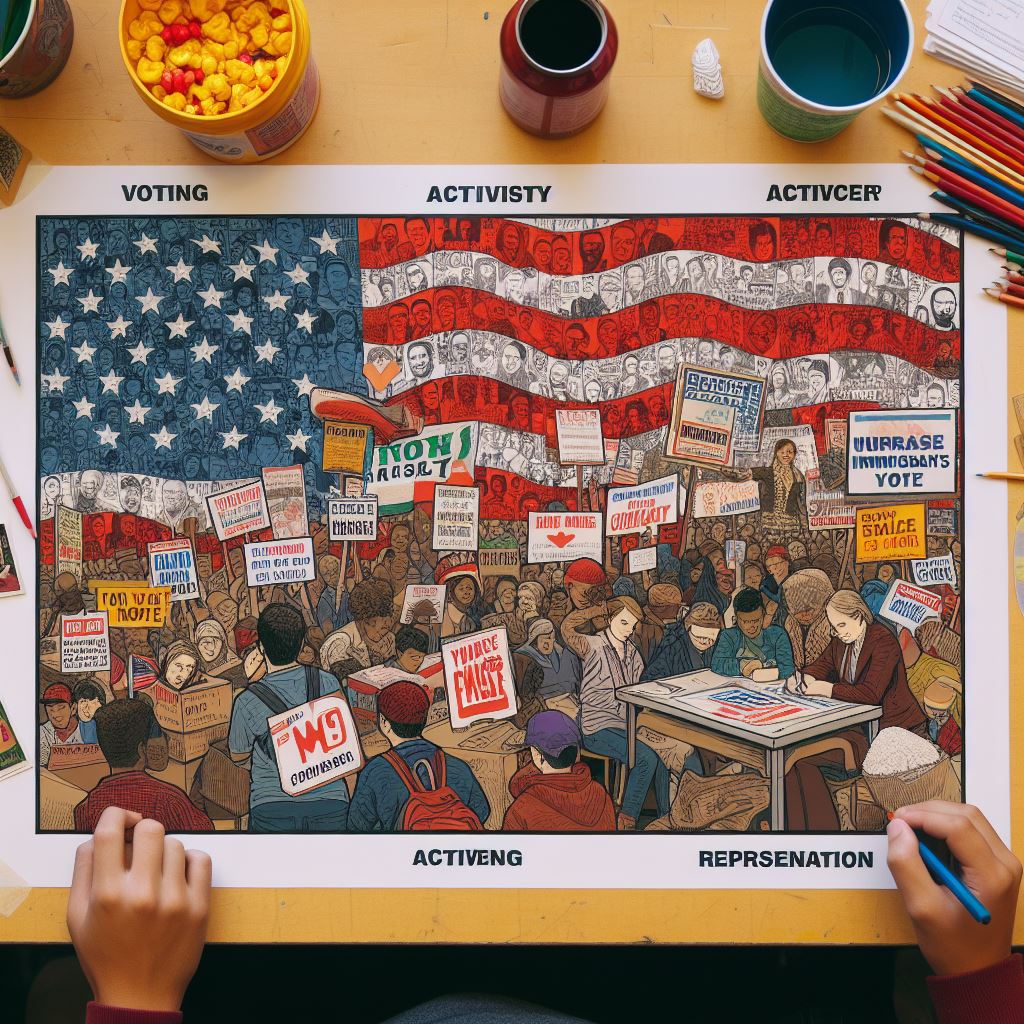The influence of immigrants on politics has been a topic of increasing importance in recent years. As immigrants settle in new countries, they bring diverse perspectives, cultural values, and political experiences. Their participation in political processes and movements has the potential to shape policies, foster inclusivity, and redefine the political landscape. Immigrants can have a significant influence on politics in their host countries. They contribute to the political landscape in various ways:

Voting power
Immigrants who become citizens gain the right to vote, which grants them the ability to participate directly in the political process. Immigrant voters can influence election outcomes, especially in areas with large immigrant populations. Political parties and candidates often tailor their platforms and policies to appeal to these voters, recognizing their potential impact on elections.
Political activism
Immigrants frequently engage in political activism to advocate for their rights and address issues affecting their communities. They form grassroots organizations, join protests and demonstrations, and lobby policymakers. Through these activities, they strive to shape public opinion, influence political agendas, and bring attention to the challenges they face.
Representation
Immigrant politicians offer unique perspectives and experiences, bringing diverse voices into the political arena. By sharing their personal stories, they can increase awareness about immigration-related issues and push for policy changes. Immigrant representatives often champion immigration reform, multiculturalism, social integration, and protections for minority communities.
Economic impact
Immigrants contribute significantly to the economy by starting businesses, filling labor gaps, and stimulating innovation. Their economic success or struggles shape civil discussions on issues such as job creation, wages, and social welfare programs. Policymakers consider the economic implications of immigration, leading to debates on immigration policies and their potential impact on the economy.
Policy focus
Immigrants’ concerns and needs often become part of the political agenda. Parties seek to secure their support by addressing immigration policies, discrimination, language access, cultural integration, and other issues affecting immigrant communities. As the immigrant population grows, these topics gain prominence in civil discourse.
Social change
Immigrants bring diverse cultural backgrounds, languages, and traditions to their host countries. This cultural enrichment prompts discussions and debates on multiculturalism, diversity, and inclusivity. Immigrant communities challenge societal norms, leading to policy changes, awareness campaigns, and public dialogue on issues related to identity, integration, and acceptance.
Electoral realignment
Immigrant communities can alter political alliances and party affiliations. As they become more politically active and vocal, their voting patterns can shift, leading to changes in electoral dynamics. Political parties adapt their platforms to appeal to immigrant voters and cater to their specific concerns, further influencing policy debates and party strategies.
Global perspective
Immigrants often maintain strong ties to their home countries, fostering transnational political engagement. They may mobilize to advocate for policies that affect their country of origin or contribute to the development of their home communities. This engagement can influence political relationships between the host country and the immigrant’s country of origin.
Demographic changes
The increasing immigrant population reshapes the demographic makeup of societies. Policymakers and politicians must address immigration-related issues, adapt to evolving voter demographics, and consider the specific needs and concerns of immigrant communities. Immigration policies and debates surrounding cultural integration become critical aspects of political discourse.
Public opinion
Immigrants’ stories, experiences, and struggles shape public opinion on immigration policies, human rights, and social justice. Media coverage and personal narratives can humanize immigrants, dispel stereotypes, and foster empathy among the general population. Public sentiment, influenced by these narratives, drives political debates and can lead to changes in policy and legislation.
In conclusion, immigrants exert a multifaceted influence on politics. Through voting power, activism, representation, economic impact, policy focus, social change, electoral realignment, global perspective, demographic changes, and public opinion, immigrants shape the political landscape of their host countries. Their contributions and advocacy play a vital role in shaping policies, fostering inclusivity, and enriching democratic societies.
You may also like these related articles:
